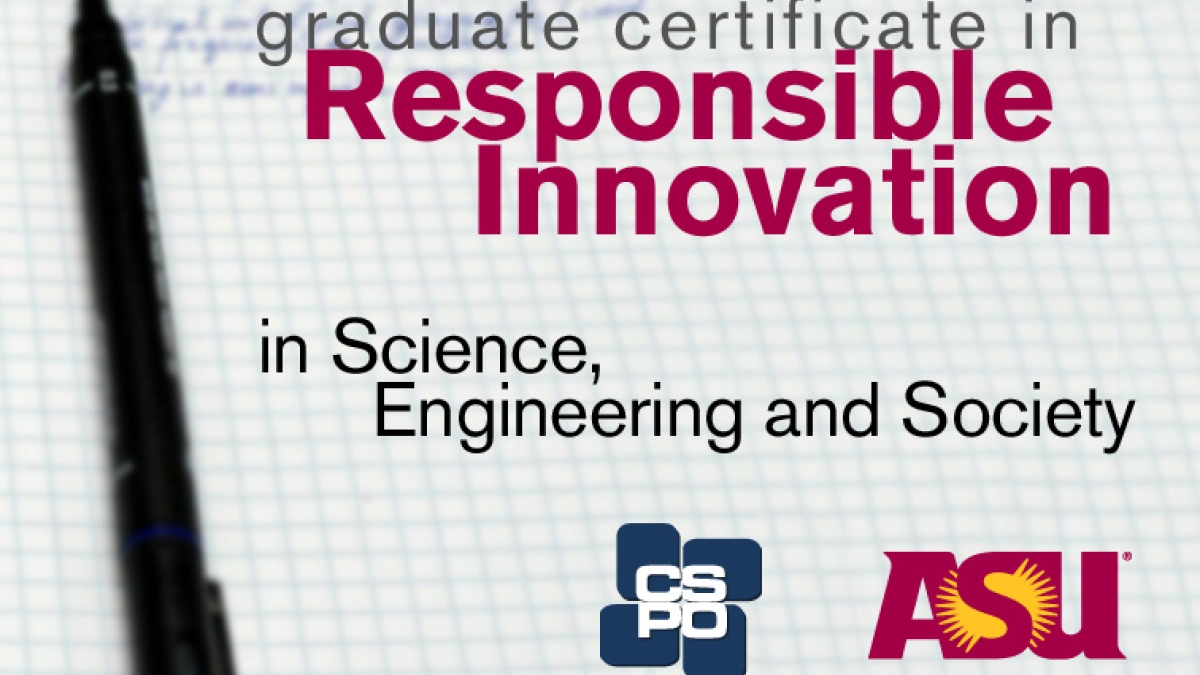New ASU grad certificate trains students in responsible innovation

A new graduate certificate at ASU aims to help professionals steer scientific and technological innovation toward desirable, ethical and responsible outcomes. The Certificate in Responsible Innovation in Science, Engineering and Society is ideal for engineers, researchers, administrators and other professionals working at the interface of science and technology with business, government and society.
Questions of ethics, privacy and social responsibility often take second place to the novelty and marketability of new technologies. Yet industry regulations and public demand put a premium on research and development practices that align with shared societal values. This makes the ability to evaluate and critique emerging technologies and the capacity to communicate the risks and benefits of those technologies increasingly valuable skills.
“In areas such as information systems and big data, health, biotechnology and genetics, sustainability and many others, we are confronting an array of complex, global challenges that demand not just new scientific advances, but ethically and socially responsible ones,” says Clark Miller, an ASU associate professor who directs the certificate program. “We are looking forward to working with professionals and students who want to lead in this new and exciting endeavor.”
The Responsible Innovation certificate is housed within ASU’s Consortium for Science, Policy and Outcomes. The consortium is an interdisciplinary unit dedicated to enhancing the contribution of science and technology to society's pursuit of equality, justice, freedom and overall quality of life. Utilizing the consortium faculty’s expertise, the Responisble Innovation certificate provides training in:
• methods for analyzing innovation and technological systems
• skills for assessing ethics, privacy and social responsibility in research and innovation
• techniques for successfully engaging and communicating with the public about science and technology
• approaches to managing risk and uncertainty in decision-making
• strategies for guiding innovation processes toward improved outcomes.
The certificate in Responsible Innovation is a key element in ASU’s global leadership in the field of responsible innovation. ASU recently received a grant from the National Science Foundation to establish the Virtual Institute of Responsible Innovation, to be housed at the Center for Nanotechnology in Society with partner universities in the United Kingdom, the Netherlands, Germany, Denmark and Brazil. Additionally, David Guston, Consortium for Science, Policy and Outcomes co-director and Responsible Innovation certificate faculty member, led the early development of the idea of responsible innovation and now serves as founding editor-in-chief of the new Journal of Responsible Innovation, which will begin publication in 2014.
“Responsible innovation is quickly becoming a vital facet of science, engineering and technology,” says Guston. “This certificate program, designed for both graduate students and working professionals, is an excellent addition to ASU’s leadership in this growing field.”
The certificate may be taken as a stand-alone program or in combination with any ASU graduate degree. The certificate involves 15 credits of coursework, including a practicum experience. To apply for enrollment, visit asu.edu and search “Responsible Innovation” under Find My Program.